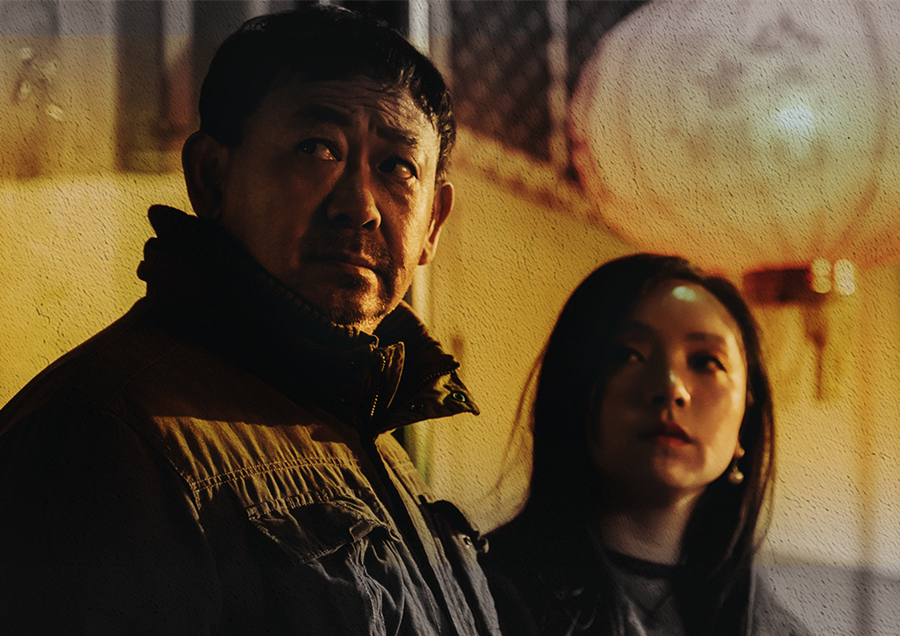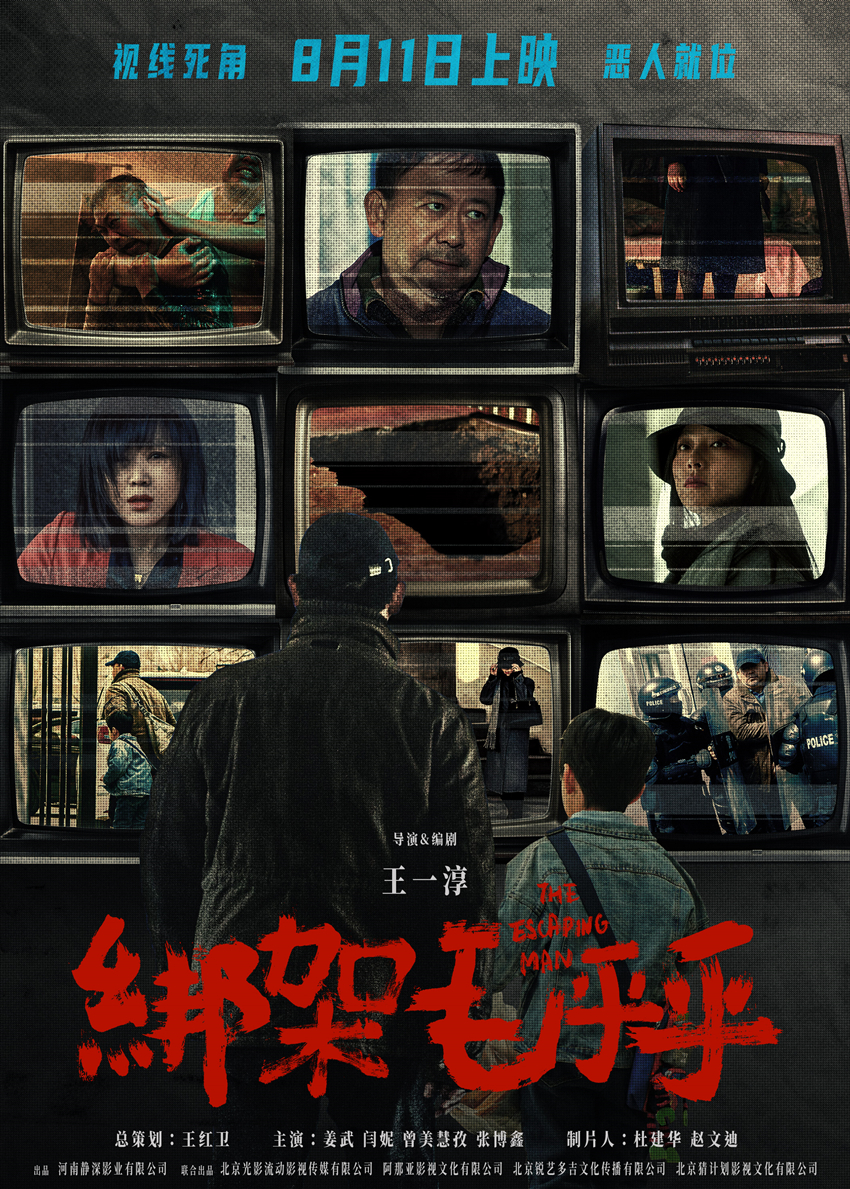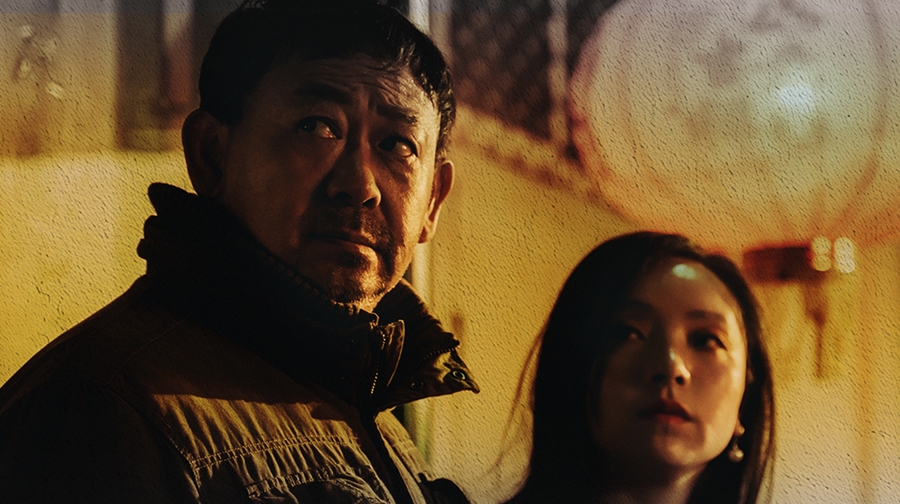The director of "The Escaping Man," a dark crime comedy about a kidnapping scheme gone wrong, told China.org.cn in an exclusive interview that her new film explores warmth and kindness amid dark circumstances.

A still from "The Escaping Man." [Photo courtesy of J&S Pictures]
Written and directed by Wang Yichun, "The Escaping Man" stars Jiang Wu, Yan Ni, Zeng Meihuizi and child actor Zhang Boxin. Wang has been a frequent winner and nominee at film festivals at home and abroad since her debut feature "What's in the Darkness" (2015). The new film's script previously won the most bankable project award at the 2018 Shanghai International Film Festival. The film is set for national release on Aug. 11.
Wang said the film was inspired by her personal experiences, particularly since her child was the same age as the boy in "The Escaping Man" when she wrote the script. The story draws from familiar realities, including children's extracurricular activities, academic competition, and tensions between families and domestic helpers. The director said she had extensive experience dealing with various nannies.
"Some nannies were wonderful to work with, while others created strange dynamics," Wang recalled. "You can't define domestic helpers with a simple label; they're individuals with all kinds of personalities. Throughout my child's upbringing, I encountered completely different types."
She continued: "If you search for discussions about nannies online, you'll find heated debates with both sides making passionate accusations. These conflicts ultimately stem from small daily issues, yet they seem impossible to resolve. This shows how people naturally take fixed positions. I wanted to examine these tensions as a spectator. That way, I could explore how ordinary disputes spiral into extreme situations."
Drawing from Wang's unique observations and perspective, "The Escaping Man" follows a bizarre kidnapping scheme in which a calculating nanny (Zeng Meihuizi) teams up with her ex-lover (Jiang Wu) to abduct her employer's son for revenge. What begins as a carefully planned crime quickly derails through incompetent execution and mounting mishaps, escalating into violent absurdity as all parties lose control. Despite its horrific premise, the film delivers moments of fairy-tale tenderness, particularly through the evolving bond between the boy and his kidnapper.
"I feel we don't lack stories that only show cruelty, nor ones that simply portray kindness," the director said. "But focusing solely on either would feel too one-dimensional. When we first depict hardness and brutality, then discover warmth and humanity in life's darkest corners — that's when compassion becomes truly moving. That's why I've always wanted to tell a story where innocence and kindness overcome strength and harshness. In real life, this usually fails, but I wanted to let goodness win on screen."
Wang said actor Jiang Wu provided crucial support during the film's challenging periods, revealing that the veteran actor eagerly joined after reading the script. "Thanks to Jiang and our dedicated cast and crew's unconditional support, I found the motivation to complete the film," she said.
The director said she didn't write Zeng's character as purely villainous. "No one grows up to be completely good or bad — we're all complex," she said. "Zeng's role likely believes life treated her unfairly at certain points, carrying that simmering resentment. People make different choices in such situations. But things spiral beyond control, defying expectations. That's where fate's randomness intrigues me. I find that unpredictability compelling. I'm drawn to exploring humanity's shadowy complexities, where glimpses of warmth amid darkness truly move us."

A poster for "The Escaping Man." [Image courtesy of J&S Pictures]
The director said she crafts stories with clear conflicts, incorporating her observations about social groups and modern pressures, including intense competition. She allows audiences to draw their own interpretations while prioritizing complete narratives where characters develop organically.
"I created two groups in this film: the 'smart ones' being the nanny and her employer, and the 'fools' being the nanny's ex-lover and the employer's child. The smart ones create conflicts while the fools resolve them. As I've said before, I wanted the smart to fight and the foolish to love — that's a phrase I particularly love because it perfectly captures my film's essence," the director said.


 Share:
Share: 




 京公網安備 11010802027341號
京公網安備 11010802027341號